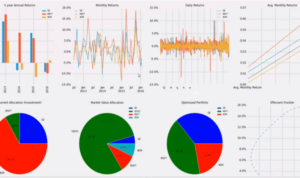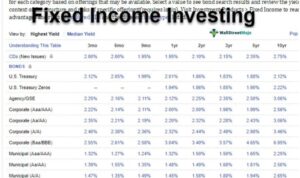Embark on your journey into the world of hedge funds for beginners, where complex investment strategies are broken down into digestible bits for easy understanding. Learn the ropes of hedge fund investments and uncover the secrets to potentially high returns.
As you delve deeper, you’ll unravel the mysteries surrounding hedge funds and gain valuable insights that can pave the way to financial success.
What are Hedge Funds?
Hedge funds are alternative investment vehicles that pool capital from accredited investors to invest in a diverse range of securities and financial instruments. Unlike traditional investment funds, hedge funds often employ more aggressive strategies to achieve higher returns.
Purpose and Strategy
- Hedge funds aim to generate high returns for their investors by using a variety of strategies, including long and short positions, leverage, derivatives, and arbitrage.
- These funds typically have a high degree of flexibility in their investment approach, allowing them to adapt to changing market conditions and capitalize on opportunities.
- Unlike mutual funds, hedge funds are not regulated as strictly, giving fund managers more freedom to pursue different investment strategies.
Getting Started with Hedge Funds

Investing in hedge funds can be an exciting opportunity for those looking to diversify their portfolio and potentially achieve higher returns. However, it’s important to understand the steps involved, minimum investment requirements, and associated risks before diving in.
When it comes to getting started with hedge funds, here are some key points to consider:
Minimum Investment Requirements
- Typically, hedge funds have high minimum investment requirements, often ranging from $100,000 to $1 million or more.
- Some funds may have lower entry points for accredited investors, but it’s essential to research and confirm the specific requirements of each fund.
Risks Associated with Investing in Hedge Funds
- Hedge funds are known for their complex strategies and higher risk levels compared to traditional investments like mutual funds.
- Investors in hedge funds may face liquidity risks, as these funds often have lock-up periods where withdrawals are restricted.
- There is also the risk of losing money, as hedge funds are not immune to market fluctuations or unforeseen events that can impact their performance.
- Additionally, fees associated with hedge funds can be higher than those of other investment vehicles, potentially impacting overall returns.
Choosing a Hedge Fund
When it comes to choosing a hedge fund as a beginner, it’s essential to do your research and consider a few key factors. This decision can significantly impact your investment portfolio, so it’s crucial to make an informed choice.
Types of Hedge Funds
- Long/Short Equity Funds: These funds invest in both long and short positions in stocks, aiming to profit from both rising and falling prices.
- Global Macro Funds: These funds take large positions in global markets based on macroeconomic trends and geopolitical events.
- Event-Driven Funds: These funds focus on specific events like mergers, acquisitions, or bankruptcies to generate returns.
Importance of Due Diligence
Before investing in a hedge fund, conducting due diligence is crucial. This involves thoroughly researching the fund’s track record, strategy, fees, and risk management practices. It’s essential to understand the fund manager’s experience and qualifications to ensure they align with your investment goals.
Remember, past performance is not indicative of future results, so it’s essential to assess the fund’s strategy and risk management process carefully.
Understanding Hedge Fund Performance
In order to make informed decisions about investing in hedge funds, it is crucial to understand how to evaluate their performance. By analyzing key performance metrics and considering the factors that can impact a hedge fund’s performance, investors can assess the potential risks and rewards associated with these investment vehicles.
Key Performance Metrics
- Return on Investment (ROI): This metric measures the profitability of a hedge fund by calculating the percentage increase in the fund’s value over a specific period of time.
- Sharpe Ratio: The Sharpe Ratio helps investors assess the risk-adjusted return of a hedge fund by comparing the fund’s returns to its level of risk.
- Alpha: Alpha represents the excess return of a hedge fund compared to its benchmark index, indicating the fund manager’s skill in generating returns.
- Volatility: Volatility measures the fluctuation in a hedge fund’s returns, providing insight into the fund’s risk level and potential for returns.
Factors Impacting Performance
- Market Conditions: Changes in global economic conditions, interest rates, and geopolitical events can significantly impact a hedge fund’s performance.
- Manager Skill: The expertise and experience of the fund manager play a crucial role in determining the success of a hedge fund.
- Investment Strategy: Different investment strategies, such as long/short equity or event-driven, can influence a hedge fund’s performance based on market conditions.
- Leverage: The use of leverage in a hedge fund can amplify returns but also increase the level of risk, impacting overall performance.
Risks and Rewards of Hedge Funds
Investing in hedge funds can offer both potential risks and rewards. It is important to understand these factors before deciding to allocate your funds into this type of investment.
Potential Risks of Hedge Funds
- Hedge funds often use leverage, which can amplify both gains and losses, leading to higher risk levels compared to traditional investments.
- Lack of liquidity can be a risk, as some hedge funds have lock-up periods where investors cannot easily withdraw their funds.
- High fees associated with hedge funds, including management fees and performance fees, can eat into potential returns.
- Operational risks such as fraud, mismanagement, or regulatory changes can impact the performance of a hedge fund.
Potential Rewards of Hedge Funds
- Potential for higher returns than traditional investments due to the ability to go long or short on different assets in various market conditions.
- Diversification benefits as hedge funds can invest in a wide range of asset classes and strategies, reducing overall portfolio risk.
- Ability to generate positive returns even in bear markets, as hedge funds can use strategies to profit from market downturns.
Examples of Successful Hedge Fund Strategies
- Long/Short Equity Strategy: This strategy involves buying undervalued stocks (long) and short-selling overvalued stocks to hedge risk. An example of a successful hedge fund using this strategy is Renaissance Technologies’ Medallion Fund.
- Global Macro Strategy: This strategy focuses on macroeconomic trends and events to make investment decisions across various asset classes. George Soros’ Quantum Fund is a famous example of a successful global macro hedge fund.
- Event-Driven Strategy: This strategy seeks to profit from corporate events such as mergers, acquisitions, or bankruptcies. Paul Singer’s Elliott Management is known for successful event-driven investing.






